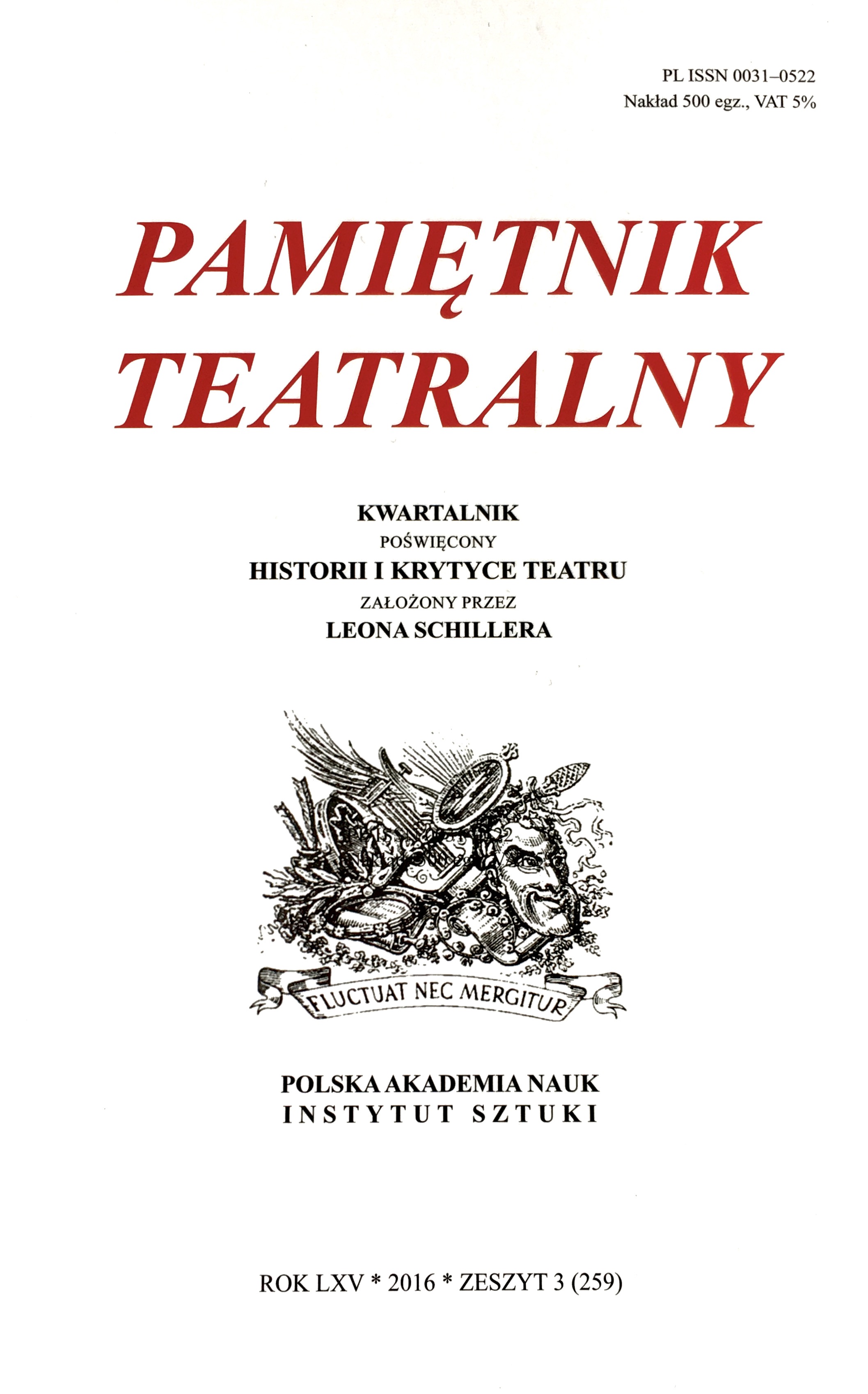Bocian Nachmana
Nachmann’s Stork
On Hanoch Levin’s Playwriting
Author(s): Antoni WinchSubject(s): Theatre, Dance, Performing Arts
Published by: Instytut Sztuki Polskiej Akademii Nauk
Keywords: Hanoch Levin; Levin;
Summary/Abstract: The article discusses the work of the Israeli playwright setting it side by side with the thought of the Jewish theologian Joshua Abraham Heschel as expressed in two of his books: Man Is Not Alone, and God in Search of Man. The two books define the poles of Levin’s existential struggles. The protagonists of the plays examined in this essay, i.e. of Krum (1975), Job’s Passion (1981), and Dreaming Child (1993), drift in a metaphysical vacuum. They try to get some fulcrum, but since they are in vacuum, their attempts are absurd. This is not the kind of the absurd that Albert Camus meant. Endorsing it does not lend Levin’s characters any dignity; it does not liberate them; on the contrary, it humiliates them and makes them feel awkward. The reference to Heschel’s writings here is not accidental. Levin’s father came from a Hasidic family and raised his son as the orthodox Jewish beliefs dictated. Thus, the image of Jewish religiosity reflected in Heschel’s philosophy was something very familiar to Levin, something that he had to take a position on. The fact that it was a position of rejection does not diminish the importance of religious faith, God and His covenant with man for the dramatic work of the author. On the contrary, it makes it one of the paramount problems that Levin and characters of his plays have to come to terms with. For Estragon and Vladimir from Samuel Beckett’s masterpiece the prolonged waiting for an absent Godot was no trifle either. Hanoch Levin is often seen as a continuator of the theatre of the Absurd. It would be impossible to fully grasp the meaning of this continuation without referring to its religious context.
Journal: Pamiętnik Teatralny
- Issue Year: 259/2016
- Issue No: 3
- Page Range: 179-198
- Page Count: 20
- Language: Polish

